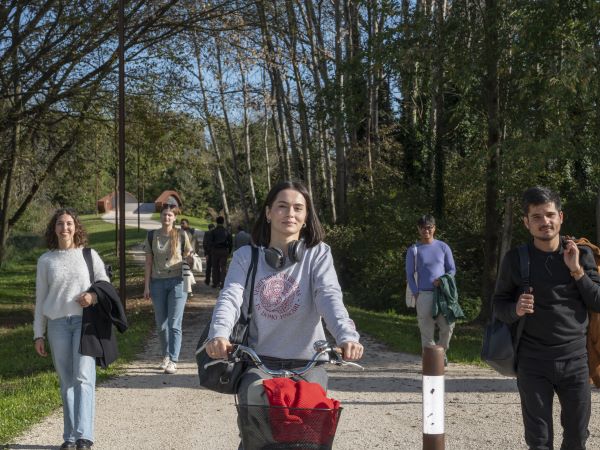Ca’ Foscari University of Venice is participating in the 27th Conference of Parties (COP27) of the United Nations Framework Convention on Climate Change (UNFCCC), which opened on Sunday 6 November 2022 in Sharm el-Sheikh, Egypt.
Head of States, Governments and national delegates headed to Egypt for the first UNFCCC Conference in a developing country after COP22 in Marrakech in 2016.
A strong emphasis has been placed on the fact that this is an “African COP”, which focuses on the priorities of developing countries, such as adaptation, climate finance, and loss and damage (L&D). The issue of loss and damage (L&D) has managed to enter the formal agenda of the Conference for the first time and is expected to be particularly thorny, as the views of historically carbon-emitting countries and those of low-income countries differ considerably.
Overall, according to the Egyptian presidency, the objective of COP27 is to be an “implementation COP”. After the creation of the Paris Rulebook in 2021, the next steps need to focus on the implementation of the commitments to deliver on the objectives of the Paris Agreement.
Some members of the Ca’ Foscari community are participating in COP27 to share research results, offer their expertise, and engage in the debates and events surrounding the official negotiations.
Can green finance make a difference in promoting the success of climate action? What conditions will enable development finance to mitigate climate adaptation? These issues were discussed in the event “Mobilising the private sector for climate action – MDBs experiences”, organised by Ca’ Foscari University of Venice and held on Thursday 10 November 2022.
Professor Stefano Battiston presented data gathered from a joint project with the World Bank, emphasising that development banks need a new theory of change when considering developing and emerging economies. In order for financial intervention in the field of climate action to be successful, it is important that countries establish a credible, long-term and transversal policy framework for energy transition. This requires cutting incentives for fossil fuels and supporting the transition to renewable energy sources for companies, workers and families.
The event was organised in collaboration with the most important Multilateral Development Banks (MDBs), such as the European Bank for Reconstruction and Development (EBRD). The panel was moderated by Maya Hennerkes, Director of Green Financial Systems, Climate Strategy and Delivery at EBDR and included, among others, Rania Al-Mashat, Minister of International Cooperation in Egypt.
Marinella Davide, Marie Skłodowska-Curie Postdoctoral Fellow at Ca’ Foscari’s Department of Economics, is also participating in two side events in Egypt. The first, What is Italyʼs pathway to limit global warming to 1.5°C?, organised by Climate Analytics and ECCO, is scheduled for 14 November in the Italian Pavilion. The Marie Curie Fellow will focus on the need for an accelerated action to avoid disruptive impacts of climate change in light of the residual window of opportunity to keep 1.5 within reach. The debate will start from the latest findings of the IPCC assessment reports to move toward the challenges posed by the Italian context, mentioning also some of the tools and policies we might build upon.
On November 17, Marinella Davide will be involved in another side event jointly organised by the Euro-Mediterranean Center on Climate Change (CMCC), the European Association of Environmental and Resource Economists (EAERE) and Società Italiana per le Scienze del Clima (SISC) on "Launching a European Climate Science Assessment Mechanism for Policy Support". In this case, the focus will broaden to the European context, touching different aspects of the European Union’s climate change policy and providing an assessment of key tools and potential improvements. The event will involve international speakers from both the academic and policy-making environment. Marinella Davide will present some of the results of her MSCA project, with a focus on the role of energy prices in the relation between temperature extremes and mortality and an evaluation of potential interaction between future mitigation policy, adaptation, and potential trade-offs for consumers.











